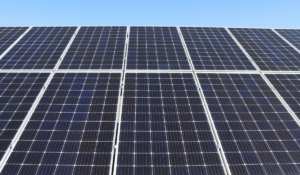Solar energy can indeed power your entire household. Some individuals have implemented extensive solar panel setups to achieve complete energy independence, effectively transforming their homes into self-sustaining ecosystems, at least in terms of energy supply.
Let’s explore the feasibility of using solar panels to meet all your household energy needs.
How Does Solar Power Work?
Solar panels work by capturing sunlight and converting it into electricity. This process, known as photovoltaic conversion, involves the use of solar cells that generate direct current (DC) electricity when exposed to sunlight.
To power your home, this DC electricity needs to be converted into alternating current (AC) electricity, which most household appliances and lighting systems use. This conversion is achieved using an inverter.
Assess Your Energy Needs
The first step in determining whether you can power your entire home with solar panels is to assess your household’s energy consumption. You’ll need to consider factors such as the size of your home, the number of occupants, the types of appliances and devices you use, and your geographical location, which affects the amount of sunlight you receive.
Size Your Solar System
Once you clearly understand your energy needs, you can size your solar panel system accordingly. Solar panel systems are typically measured in kilowatts (kW). Depending on your energy consumption, you’ll likely need a system ranging from 5 kW to 10 kW or more to power an entire home.
Remember that the size of your roof and the available space for solar panels will also influence the system’s size.
Consider Incorporating Battery Storage

Consider incorporating a battery storage system to ensure an uninterrupted power supply, especially during cloudy days or at night when the sun isn’t shining. This allows you to store excess energy generated during the day for use during periods of low or no sunlight.
Battery technology has advanced significantly in recent years, making it a practical option for homeowners seeking energy independence.
Grid Connection
In many cases, homeowners with solar panels remain connected to the grid. This setup allows you to sell excess energy back to the grid when your solar panels generate more electricity than your home consumes. It also provides a backup power source during extended cloudy weather or high energy demand.
Other Considerations and Costs
While powering your entire home with solar panels is possible, there are some important considerations. The initial investment in solar panels and related equipment can be substantial, although government incentives and rebates may help offset costs. Additionally, you’ll need to factor in ongoing maintenance and monitoring expenses.